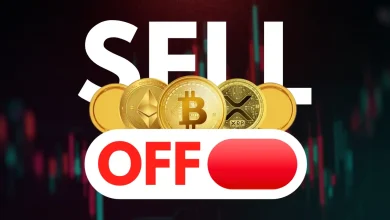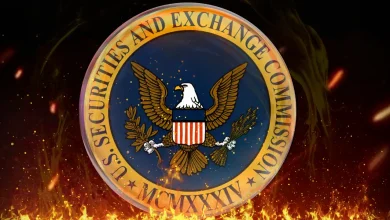
For the first time in years, the SEC’s 2026 exam priorities omit crypto, signaling a major shift under Trump-era leadership toward normalization over enforcement.
Chair Paul Atkins stresses cooperation, not crackdowns, as oversight shifts to broad themes like AI and cybersecurity, marking crypto’s move into mainstream regulation.
The U.S. SEC has released its examination priorities for the 2026 fiscal year, and for the first time in several years, crypto is not mentioned as a specific area of focus. The omission stands out, especially compared to the Gensler era, where crypto routinely appeared as a priority in annual exam documents. The shift aligns with the broader pro-crypto direction seen under President Donald Trump, whose administration has been active in deregulating the sector.
A Noticeable Change From Previous Years
In last year’s priorities under former Chair Gary Gensler, the SEC explicitly highlighted the offer, sale, trading, and advisory activity around crypto assets. Spot Bitcoin and Ether ETFs were directly named, and the Division of Examinations pledged close monitoring of firms offering crypto-related services.
This year’s document removes all of that. The SEC clarified that the published priorities are not exhaustive, but the absence of crypto marks a major shift from the agency’s past stance. Instead, the 2026 list centers on broad themes such as fiduciary duty, custody, customer protection, and oversight of brokerage and advisory firms.
Focus Moves to Emerging Tech and Cybersecurity
While crypto is not mentioned, the SEC did highlight risks around emerging technologies, including artificial intelligence and automated investment tools. The Division said it will closely review how firms deploy these tools and whether they expose investors to new risks.
Cybersecurity is another major theme for 2026. The SEC plans to pay “particular attention” to how financial firms respond to and recover from cyber incidents, including ransomware attacks. This mirrors the growing concern across federal agencies regarding digital-era threats to financial infrastructure.
A Pro-Crypto Policy Environment Under Trump
The change in tone comes as the U.S. crypto industry expands rapidly under President Trump, who has embraced the sector both publicly and through his family’s ventures. Trump-affiliated businesses have launched or invested in a trading platform, a mining operation, a stablecoin, and multiple token projects.
Current SEC Chair Paul Atkins emphasized that examinations should not be a “gotcha” exercise and that firms should be able to engage transparently with regulators. His comments reflect a broader shift away from aggressive enforcement and toward cooperation and clarity, an approach welcomed by many crypto firms.
Crypto Moves Toward Normalization, Not Exemption
Analyst Mason Blak C noted that the removal of the crypto section does not mean the SEC is abandoning oversight. Instead, crypto is no longer treated as a standalone “problem area.” It is being folded into the broader regulatory system alongside other assets and technologies. The agency can still intervene whenever digital assets pose risks, but the approach is shifting toward normalization rather than punishment.
He explained that this moment marks crypto’s transition from the fringe to a regulated part of the financial mainstream, not a victory lap, but a meaningful step toward long-term legitimacy.
Never Miss a Beat in the Crypto World!
Stay ahead with breaking news, expert analysis, and real-time updates on the latest trends in Bitcoin, altcoins, DeFi, NFTs, and more.
FAQs
No. The SEC can still review or act on crypto issues. It simply no longer lists crypto as a separate focus, signaling a shift toward mainstream regulation.
A pro-innovation approach under Trump encourages lighter regulation and industry growth, pushing agencies to focus on cooperation instead of heavy enforcement.
The SEC is emphasizing fiduciary duty, custody, investor protection, AI risks, and cybersecurity readiness across financial firms.
It shows crypto is moving toward regulatory normalcy, where digital assets are treated like traditional financial products rather than a high-risk outlier.
Trust with CoinPedia:
CoinPedia has been delivering accurate and timely cryptocurrency and blockchain updates since 2017. All content is created by our expert panel of analysts and journalists, following strict Editorial Guidelines based on E-E-A-T (Experience, Expertise, Authoritativeness, Trustworthiness). Every article is fact-checked against reputable sources to ensure accuracy, transparency, and reliability. Our review policy guarantees unbiased evaluations when recommending exchanges, platforms, or tools. We strive to provide timely updates about everything crypto & blockchain, right from startups to industry majors.
Investment Disclaimer:
All opinions and insights shared represent the author's own views on current market conditions. Please do your own research before making investment decisions. Neither the writer nor the publication assumes responsibility for your financial choices.
Sponsored and Advertisements:
Sponsored content and affiliate links may appear on our site. Advertisements are marked clearly, and our editorial content remains entirely independent from our ad partners.








